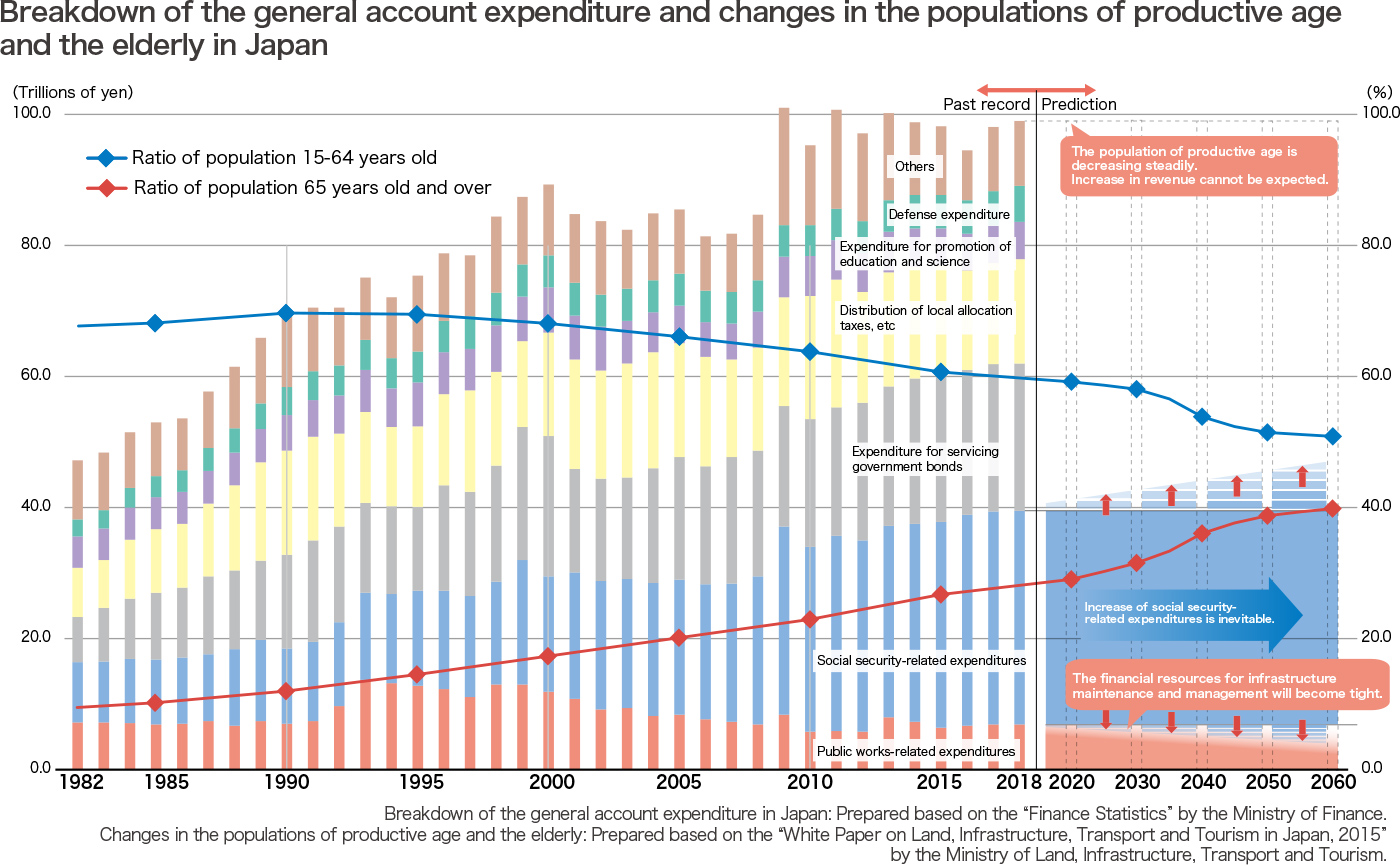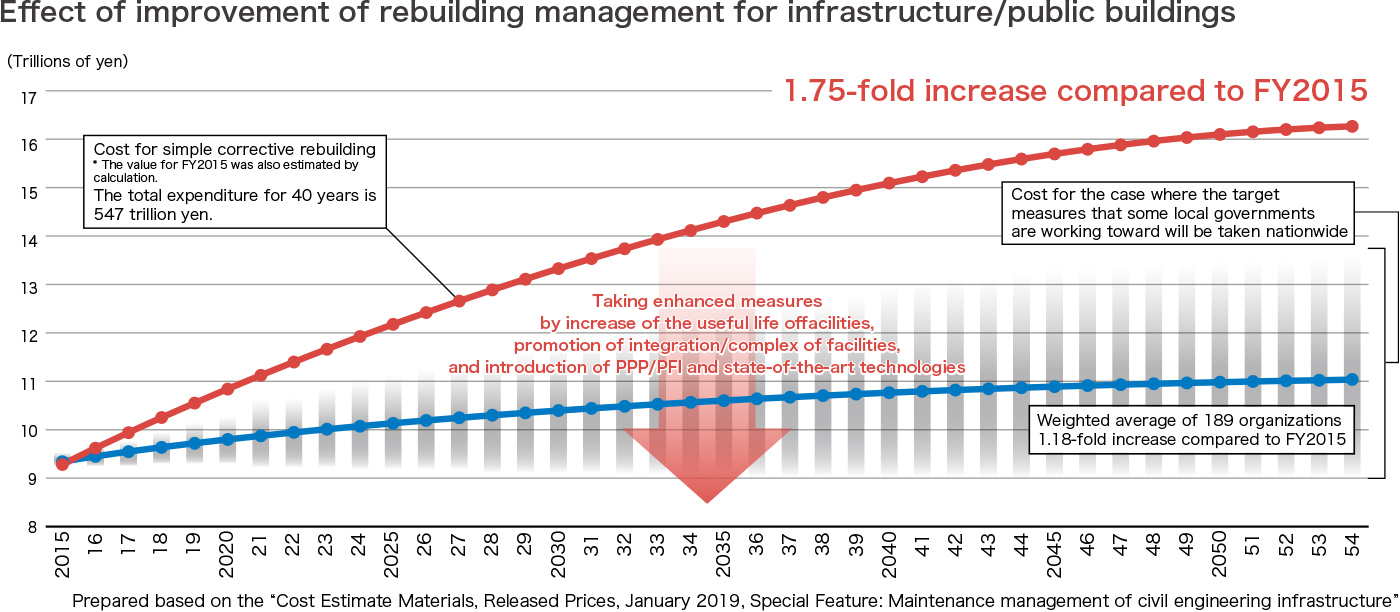Feature Story 2 “De-construction” business activities as our practice of CSV management
Social problems and backgrounds
Present state of problems in regions
In Japan, the progress of decreasing birthrate and aging of the population and the decrease in population have various effects on society. In particular, the decrease in productive population (from 15 to 64) has led to a decrease in tax revenue, and social security-related expenditures in the fields of medical care for the elderly and child welfare have been increasing, which is a major factor in putting financial pressure on the national and local governments.
On the other hand, the large number of infrastructures that were constructed during the high-economic-growth period are entering the rebuilding stage all together, and it is expected that maintenance or rebuilding costs will increase rapidly in the future. In addition, there is a high probability that progress in the aging of the infrastructures will cause difficulty even in keeping the current service level, resulting in inconvenience and problems in people’s lives.
Thus, Japan has been faced with issues, that is, the financial deterioration of the national and local governments and the aging of the infrastructure requiring high maintenance/rebuilding costs. In addition, the shortage of technical officials at municipalities has become more serious.
It is difficult to maintain the present high-quality infrastructure services using the existing system. Therefore, actions based on radical approaches, such as pursuing the extension of lives of facilities, consolidation or complexing of facilities, PPP/PFI, streamlining through the adoption of the advanced technology, etc., are required to solve the challenges mentioned above.


Ability to respond to social problems can be increased through “de-construction”
Since its foundation, MAEDA has expanded its businesses to fields ranging from mountainous civil engineering to urban civil engineering, construction, overseas projects, and retailing. In the meantime, our business management centering on construction such as that of construction works, has been at the mercy of the boom-and-bust cycle time and gain, and repeatedly experienced hardships.
Japan has now run into an uncertain and clouded age where the social and economic structures alter from day to day. To sustainably develop and continue to return value to society, we need to build a stable revenue base in addition to securing profit in construction. We aim to realize a new business model as an integrated infrastructure service company by fusing our engineering capability in construction, which we have cultivated so far, with a new construction service in “de-construction.”
What we seek as an integrated infrastructure service company is to get involved with businesses in all phases from the viewpoint of a business operator, by expanding and enhancing our business areas both upstream and downstream such as business creation and operational management, while centering on the construction of infrastructures, which is our strength. In this approach, we will propose and create new values by proactively looking squarely at the world, and correctly grasping the problems that society has.
MAEDA has accumulated a varied track record in, for example, concession and renewable energy businesses as “de-construction”. Further, our company is pursuing “regional strategy” efforts intended to solve problems related to more infrastructures and public facilities, through which our business sites rooted in the respective regions serve as the starting point, and work with necessary efforts while grasping the problems and future vision specific to the region. By making the most of our engineering capability, which is our strength, and the ability to build ties with the regional community, we are trying to solve the regional problems.
Feature Story 2-1 describes our efforts to address challenges in the field of aging water infrastructure in the “de-construction” business. In the future, it will be further required to conduct strategic maintenance, renewal, etc. of aging facilities and promote continuous efforts to reduce risk, and our company has also been promoting efforts to solve social challenges.
Feature Story 2-2 introduces a comprehensive management outsourcing business, which is based on public-private collaboration, as part of our “regional strategy.” This is one of the problem-solving techniques in regional infrastructure maintenance and management, and the number of municipalities adopting this technique has increased in recent years.
We hope to contribute to solving the problems in a broader range of fields and revitalizing the region while accumulating various pieces of know-how in problem-solving through the business.
MAEDA will continue to practice our CSV management, in which we pursue efforts to solve regional problems and cooperate with the public, regional, and private sectors to establish a win-win-win relationship.